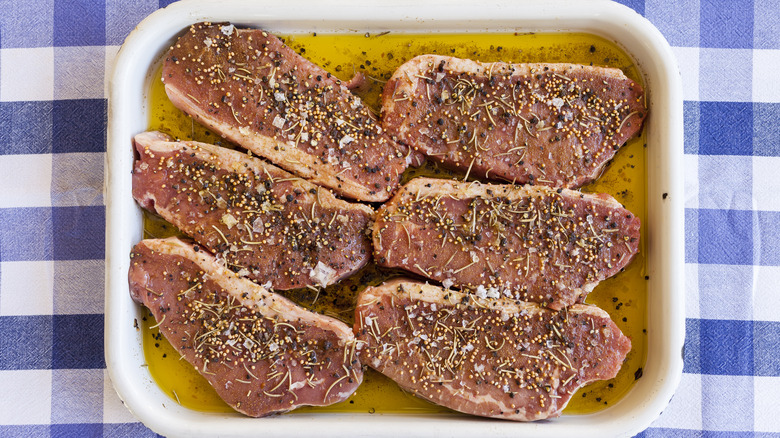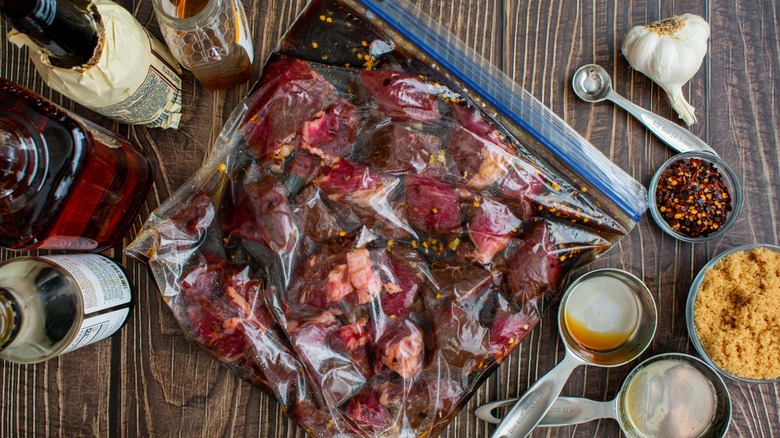Why You Should Avoid Marinating Meat In A Metal Container
Marinating meat is a surefire way to infuse your chosen protein with extra flavor and make it more tender. It helps to boost the taste and texture of all sorts of meats and fish — and you can even marinate burgers. Whether you use citrus, vinegar, buttermilk, or even wine or beer, acid is a key component of any basic marinade recipe, thanks to the way it softens tougher cuts. However, the method is just as vital as the ingredients, and that includes the receptacle you use to marinate the meat in. Food Republic asked an expert for some top tips to get the best results.
For K.C. Gulbro — owner of FoxFire Restaurant and Copper Fox event venue in Geneva, Illinois, and Chef Ambassador for Certified Angus Beef® — the biggest mistake is marinating food in metal containers. "Avoid marinating your meat in a metal pan/container, as acids and some ingredients can react with the metal," he explains. This is similar to how acidity affects the shelf life of canned foods.
While non-reactive stainless steel is fine for marinades, aluminum is what you need to be wary of. The reason is that the acids in the mixture chemically react with the metal, which can begin to change the flavors or colors of the food. It's not just typically acidic ingredients that have this effect, either; garlic can also react with the metal.
Use a food-safe plastic bag or zip-top bag to marinate meat
Metal is not the only material that causes issues when marinating. "Keep in mind that acids can damage some plastics, too," advises expert K.C. Gulbro. Instead, he recommends "using a food-safe plastic bag or ziplock bag." Alternatively, you could use a glass or ceramic container covered with plastic wrap, but you will need to turn the meat as it marinates so that all sides are covered. The bag method evenly coats all the meat's surface in the liquid, and makes cleanup easier.
Other tips can also help deliver superior results when safely marinating chicken or other meats. That starts with using the right amount: try half a cup of marinade for each pound of protein. Don't leave the marinade on too long, or the meat can become mushy — between six and 24 hours is ideal. For fish and seafood, which have a more delicate texture, aim for a much shorter period of 15 minutes to an hour.
According to the USDA, meat and poultry should always be marinated in the refrigerator, not at room temperature, and on the bottom shelf so that raw foods cannot drip onto items beneath. If your recipe calls for room temperature marination, then increase the time it spends marinating in the fridge to get the same tenderness. Finally, remember that marinated meats take around a third less time to cook than non-marinated, so take care when cooking to prevent them from burning.


